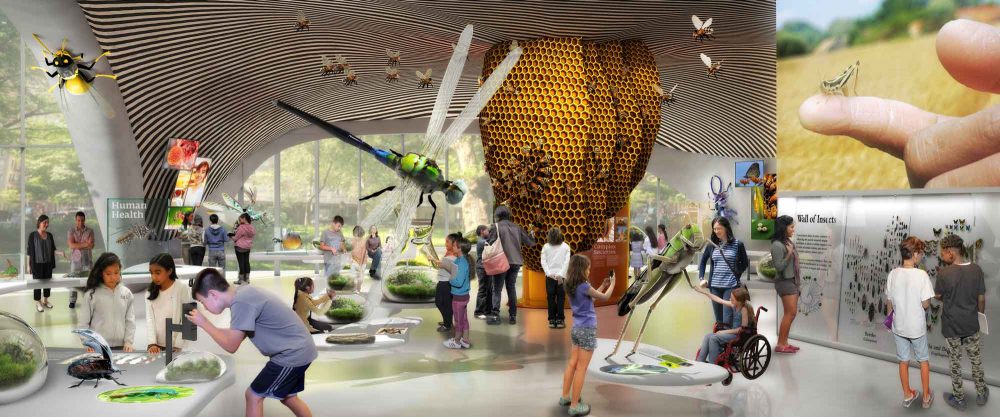Fast Company — “Designing a Science Museum for a Post-Truth World”
January 12, 2017
“With its forthcoming renovation and addition scheduled to open in 2020, the American Museum of Natural History in New York is on a mission to become the world’s science lab. ‘In a post-truth world, understanding science has never been more urgent,’ Ellen Futter, the museum’s president, told reporters at a press briefing on Wednesday.
More than 5 million people of all ages and all walks of life visit the museum on the Upper West Side every year, and the institution views itself as one of the first lines of defense in a newly science-skeptical world. Both Michelle Obama and President Obama stressed the importance of education in their farewell addresses; meanwhile, the incoming administration has denied decades of sound climate science. The Museum of Natural History’s mission has never felt more vital. …
The five-story, $340 million addition—formally named the Gilder Center for Science, Education, and Innovation—is being masterminded by Chicago-based architects Studio Gang and Ralph Appelbaum Associates, a New York-based firm specializing in exhibition and museum planning. The design embodies the museum’s ambition to become an avenue for discovery—an institution that makes scientific research transparent, that becomes a hub for public education, and that leaves visitors of all ages excited, inspired, and curious about the natural world. Through architecture that encourages exploration, and interactive exhibitions that use new digital tools like VR, AR, and digital imaging, the museum aspires not just to be a display of science, but an invitation to experience science.”
“When I see these plans, I see a facility that will continue this very potent tradition of not only teaching people what science is, and how and why it works, but also influencing people emotionally and psychologically, recognizing ‘oh my gosh, this is the natural world to which we are embedded and we are a part.’”
—Neil deGrasse Tyson
Related
Architect’s Newspaper — “Jeanne Gang Unveils New Interiors for the American Museum of Natural History”
“Architect Jeanne Gang of Chicago-based Studio Gang and exhibition designer Ralph Appelbaum unveiled their latest designs for the new Richard Gilder Center for Science, Education, and Innovation.”



